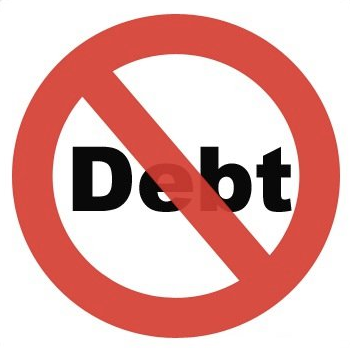
By Amanda Morrall
1) Savings and spending
Housing bubbles, over-valued stock and bonds, term deposits that can't keep pace with inflation....our new economic reality is grim news for investors and savers for whom conventional channels of wealth creation are fading fast.
U.S. publisher and investor Doug Casey, in one of his popular reports, describes it as "financial no-man's land" and predicts the savings environment will become even more hostile with stagnant income under threat by impending consumer cost explosions. So the question on everyone's mind, or at least those fortunate to have any change left over at the end of the day: "What should I do with my money now?
Casey sees potential profit for financial survivalists in five key areas: active business, entrepreneurialism, innovation, “hoarding” and agriculture. "The years to come are going to be tough on investors and businessmen, but full of opportunity for speculators and entrepreneurs,'' writes Casey whose parting piece of advice is this: "Keep your passports current, your powder dry, and your eyes open."
2) Credit and Debt
 Is there such a thing as responsible lending? And who is to blame when debt breaks its owner? The issue was raised this week with the grassroots community group Debt-Free Newtown taking Rugby League player Stacey Jones to task for promoting high-interest loans through one of the more reputable and 'responsible lenders.'
Is there such a thing as responsible lending? And who is to blame when debt breaks its owner? The issue was raised this week with the grassroots community group Debt-Free Newtown taking Rugby League player Stacey Jones to task for promoting high-interest loans through one of the more reputable and 'responsible lenders.'
Can lenders operating in a free-market properly be blamed for letting desperate people, with nowhere else to turn, borrow money at 30% interest or more when the borrowers themselves are at least partly to blame for making poor choices?
It's a hard one to call and generalisations are dangerous, but without a doubt the white collar guys in fancy houses make for good scape goats. In any event, the Financial Services Federation (a group representing what's left of the finance companies in New Zealand) recently released some guidelines on responsible lending with an emphasis on making the true cost of borrowing better understood. Now if only there were a test for measuring comprehension..the guideline is so far available only in English, the second language of many borrowers forced to rely on finance companies. FSF head Kirk Hope says a translation is forthcoming.
3) Real estate
We had a lively web-discussion this week with respected investor and financial writer Martin Hawes who maintains rental property is a bad investment. He argues the returns just aren't worth it. Many refuse to believe it but statistics compiled by our in-house data trackers bear this out. On first-quartile rental properties, for those on median incomes, the return on investment is marginal at best.
Factoring in mortgage, rates, insurance and maintenance, most rental properties across the country just break even. Watch this space next week as we'll provide regional ROI's on rental properties across the country.
4) Death and taxes
A rare bit of financial good news landed in my mail box this week. A note from my financial adviser (yes I have one) notififying me that monitoring fees on managed funds (yes for better or worse I have one of those too) are 100% tax deductible. As my fund has been going steadily down-hill since acquiring it,("remember Amanda's its long-term" I'm assured) I felt a slight lift in my spirits for something resembling a gain. I share this bit of information at the risk of getting pilloried by a core of group of regular readers on our site who rabidly oppose both financial advisers and managed funds.
My intention here isn't to advocate for or against but merely to let others who may be in a similar boat to inquire after a similar break if they haven't received like notices in their mail. This is the first year this tax deduction has been brought to my attention and apparently that of the fund manager who called in a tax expert, presumably in hopes of finding some glimmer of good news to give to investors.
5) Books and Film
In my second year university as an undergraduate student, Francis Fukuyama was top of the required reading list in poli-sci for an article he'd penned entitled, 'The End of History," a contracted version of what would become a bestselling academic title in 1992. Fukuyama's fame has been unabating. Whether his latest offering "The Origins of Political Order: From Prehuman Times to the French Revolution" will trump "The End of History'' is doubtful but Fukuyama remains a highly respected academic and observer of political life.
In his latest book, he explores the roots of democracy with a view to discovering why some work and others fail. David Runciman, in this Guardian Weekly review, gives the book a mediocre review but the content and theme is nevertheless worthy, now more so than ever.
Here's a video clip of Fukuyama talking about his new book.
9 Comments
This thread is looking a bit lonely Amanda:(
Andrewj posted a link earlier in the week to I think Michael Hudson. The article contained within it reference to the Iceland experiece and how they have taken the line the the debtors ability to pay is actually the responsibility of the creditor.
My comment was, and is, it would be good to see this prinicple applied to personal debt in NZ. Perhaps then some of these outfits charging ludicrous interest rates would take a haircut.
Stacy should be ashamed of himself, but then loan sharking and debt collection in South Auckland is a different ball game to anywhere else. Police work in that area is mainly a token excercise that only catches the extremes.
:) Thanks for adding to the spool. I would support such a policy and principle as well. Lenders (at least most of them) have the benefit of a higher understanding than the borrower about the true weight of debt --- so they should have a greater responsibility. It's too bad people don't have more of a conscience when it comes to these things....but after reading that our chances of saving the planet from a truly horrible fate are all but doomed (http://www.guardian.co.uk/environment/2011/may/29/carbon-emissions-nucl…)
maybe it's all a moot point...I'll save my trip to S. Auckland for another day when I"m feeling more hopeful.
The telling point in that link, is that the 'recession' didn't put the brakes on. That's what could have been expected, when inelasticity of demand met an exponential growth-curve being taken as a base-line.
But climate change - awful prospect that it is - will not be first cab off the rank. Energy scarcity will outrank it, ironically too late to help with atmospheric carbon.
I expect the two majorest powers to scrap over what is left. The USA has to ge early, China will leave it as late as possible. It can't possible be more than 10 years away.
and Russia v US over artic? could be a nice bun fight there....though I did laugh when some GOP Congressman/Senator said dont buy oil off the Middle east, to unstable, buy it off Russia instead no problem....
Oh dear
"4C by 2100," he said." what he doesnt say though is 2100 is an arbitary "cutoff" the rise still continues after 2100....
Oh dear...dear.....I think what we will see will be a rush to dirtier fuels such as coal as the panic sets in.
regards
Yes the fight over the scraps in inevitable really. I hear you are right about Russia though, I heard from an oil engineer a couple of years ago that the Russians have plenty of capacity but lack the refining capacity. Interesingly this engineer was big on electric cars, which should be a warning to the naysayers.
Agree with PDK about Carbon not being the first problem the will confront us. It will be a close run between the water, food supply and oil, although they are closely linked.
10 years huh? Hmmm will the U.S. be annexing Canada in that time ya reckon. We have the second largest oil reserve in Alberta. Also, will NZ still be afloat when the ship goes down? Just wondering where to best position myself on the desk...could be good fireworks when all the volcanoes start going off.
The US doesnt need to, there is the NAFTA? that is a "free" trade agreement that seems to be an excuse for the US to pull as much of anything they want when they want....this is a huge problem for Canada as the environmental damage from the shale tailings is simply huge, not to mention it cant ring fence energy or indeed anything for its own citizens when shortages start to occur.
And this is why I am so anti so called free trade agreements with the US (in particular), once into these they can pull anything they want from NZ at prices NZers cannot afford to match...this I think will cause huge political instability in the future....and not just in NZ.....we have a surplus, they need us and not we need them.
Canada's oil sands have another huge problem....they cost $80 odd a barrel to get out but have a worse energy return than 10:1 this means to get out 10 barrels of oil we have to spend more than 1 in getting and processing it...and the crazy ways they are suggesting to do that is nuclear....the last plant built took 23 years, the minimum is 8 years....do you really want collections of American style nuclear reators (think japan) sitting on the oil sands melting them for americans? not to mention their huge water cooling requirments and the huge water requirements to process the sands....
NZ is the only lifeboat I know of...and that will probably be swamped. Over-population is what will be our un-doing....yet its not PC to mention it....so at some stage if it gets really bad I guess we will see machine guns on beaches....not a pretty thought.
regards
Sorry put this link on the wrong page, The telegraph on oil consumption
http://www.telegraph.co.uk/finance/comment/liamhalligan/8570394/Opecs-V…
Yet Total sees a max of 95mbpd out to about 2030.....assuming no geo-political issues...(yeah right)
http://www.theoildrum.com/node/8001
....now to get enough growth to reduce unemployment we have to exceed 3%, so say 4%. 4% more GDP = 2.5% more energy per year.....or in 28 years the present 85mbpd has to be 170mbpd.....it isnt happening...we will be lucky to see 95....75mbpd short in a in-elastic commodity....I think there was a war game report where even 4% short saw a 4 fold increase in the oil price $160USD I think it was....and we are 40% short.....h
Somehow its obvious that the likes of BP etc are not telling us the truth, they simpy cannot be based on 170mbpd in 2040....I dont think ive seen any model that says that....some dis-functional ones said 130mbpd....
How this cannot be bad, if only for our children I do not know.
I think Liam gets it....
regards
We welcome your comments below. If you are not already registered, please register to comment
Remember we welcome robust, respectful and insightful debate. We don't welcome abusive or defamatory comments and will de-register those repeatedly making such comments. Our current comment policy is here.